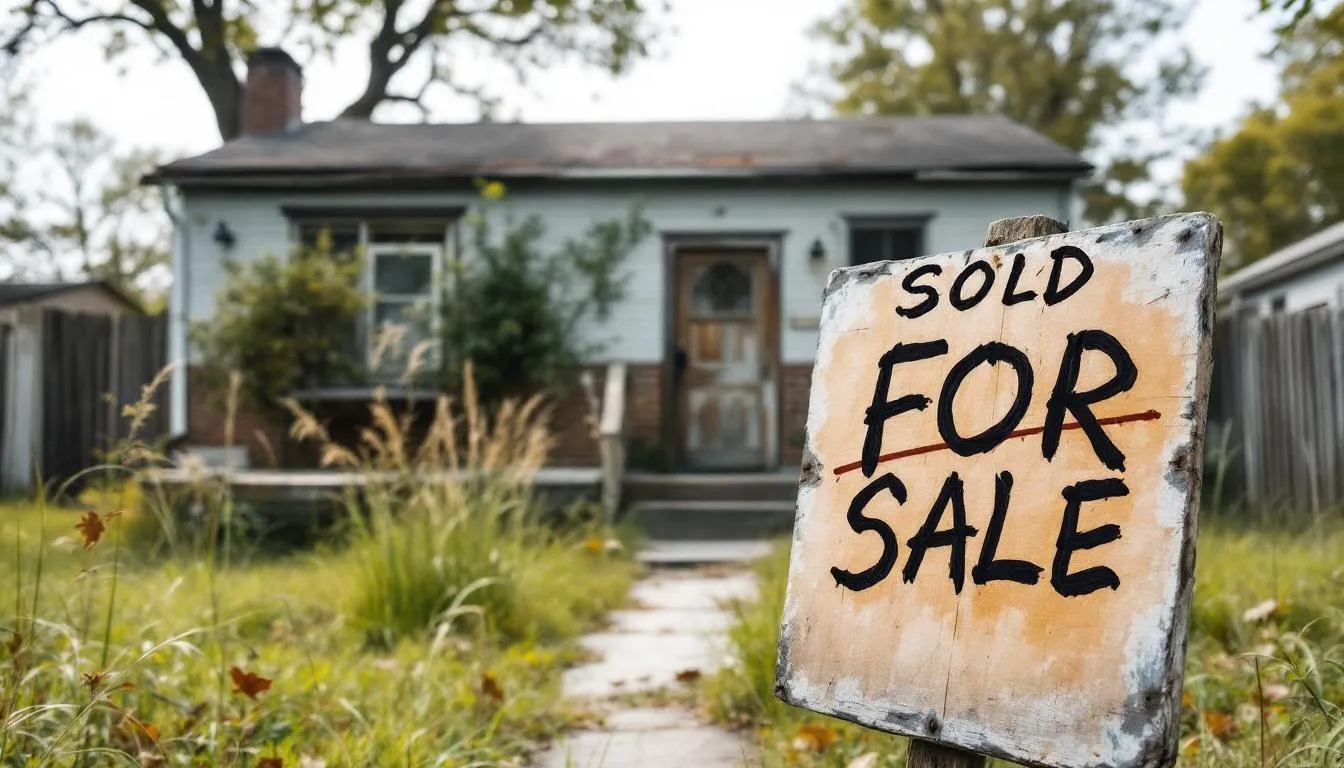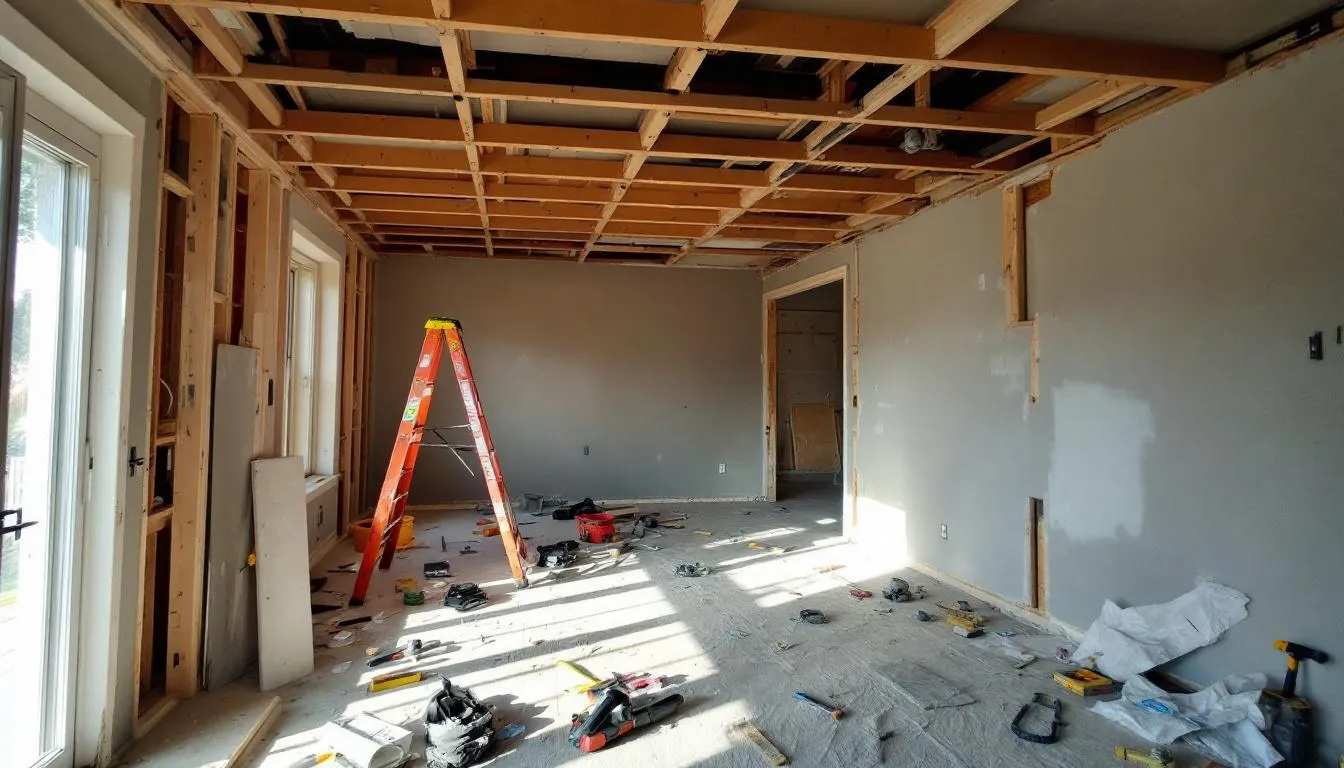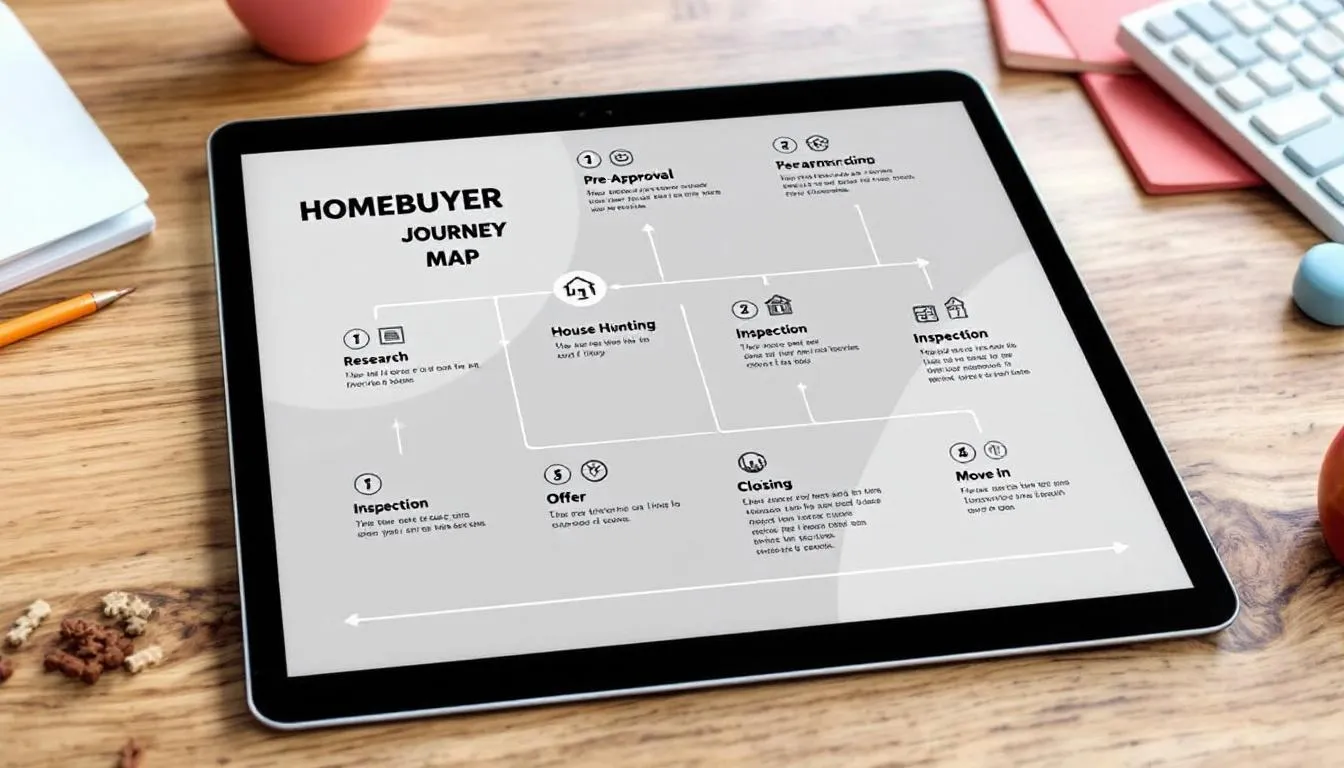- 🧠 Personalized mortgage lending is replacing conventional models as borrowers demand tailored financial solutions.
- 💰 Less than 13% of eligible veterans have used VA mortgages, leaving huge untapped potential.
- 🏚️ Over 40% of U.S. homes were built before 1980, increasing demand for renovation loans.
- 🤖 80% of borrowers value technology that delivers transparency and loan personalization, according to Freddie Mac.
- 📉 Future refinance waves will favor borrowers prepared with individualized, strategy-driven mortgage plans.

The Fall of the Mortgage “Workhorse”
From 2008 to 2020, mortgage lending was largely dominated by standardized conventional products like FHA and standard VA loans. These products were the industry's “workhorses” — heavily promoted by lenders due to their low institutional risk and ease of processing at scale. But that assembly-line approach often came at the cost of a borrower’s unique financial situation, priorities, and lifestyle needs.
The market has changed a lot. Platforms, rate checkers, and online markets now give borrowers new ways to see everything clearly. They can compare interest rates in real time, run loan simulations, and make decisions based on data—all from their phones. With growing affordability issues, not enough homes, and more buyer competition, standard mortgage products now do less. Modern borrowers want more—more guidance, more flexibility, and more personal options.

From Uniform to Unique: The Rise of Specialized Lending
Specialized mortgage lending has changed the whole home finance system. Unlike one-size-fits-all products, this approach puts borrower needs, circumstances, and goals first. These new lending options are made for different life stages, property types, and future goals. This helps borrowers think smart about their choices instead of just taking standard options.
So, what does this change mean in real life?
Instead of making every buyer fit the same mortgage mold, loan officers and brokers now act more like financial advisors. Homebuyers do not just get loans. They work with lenders to build the best funding plan. Having many different products is not just a plus. It directly answers what borrowers now expect.
If someone is a first-time buyer, military veteran, investor, or downsizer looking for a lifestyle change, the new specialized products offer flexibility and custom options. Personalized mortgage lending now helps many people find their way through a harder housing market.

VA Mortgages: Empowering Veteran Homebuyers
VA mortgages stand tall as one of the most borrower-friendly programs in the market—and yet they remain underutilized. Backed by the U.S. Department of Veterans Affairs, these loans are designed to honor service members' contributions by removing some of the most common barriers to homeownership.
Here are key benefits of VA mortgages:
- Zero down payment required
- Exemption from private mortgage insurance (PMI)
- Competitive, often below-market, interest rates
- Flexible credit underwriting standards
- Limits on closing costs and fees
In competitive real estate markets such as Las Vegas, these advantages can make a decisive difference. By eliminating the down payment, buyers can immediately make their offers stronger. This is very important when bidding wars start for good properties.
Despite their incredible benefits, VA mortgages are tragically overlooked. The U.S. Department of Veterans Affairs reports that less than 13% of the over 24 million eligible veterans in the U.S. have ever used this benefit. This statistic shows a continued need for more awareness and education—not just among borrowers, but also among agents and loan officers.
Also, many veterans don't know how flexible VA mortgages are. Aside from new purchases, these loans can be used to refinance, adapt homes for disability access, or even build new properties from the ground up.
Las Vegas has many military members and veterans because Nellis Air Force Base is nearby, and VA services are available. In this city, VA loans offer a strong way to build equity and financial security.
Agents and loan providers who know about VA mortgages offer more than money; they help people gain control.

Renovation Loans: Solving for Supply & Customization
As there are fewer homes for sale and prices go up, people are looking at older or unused properties. Renovation loans are a growing option. They help with the lack of homes and let people customize them.
What exactly is a renovation loan?
It’s a lending product that allows buyers—or current homeowners—to finance not just the purchase (or refinance) of a home, but also the cost of repairs and upgrades. These costs are bundled into one mortgage. This makes the financing simpler and offers more ways to customize a home.
Two main renovation loan options are:
- Fannie Mae’s HomeStyle Loan: Good for typical buyers who want to upgrade a property to current design standards or add space.
- FHA’s 203(k) Loan: Made for both urgent repairs and making primary residences look better.
More than 40% of homes in the U.S. were built before 1980. So, renovation loans are not just a smart idea; they are vital tools for people who want to own homes and for investors.
These loans do more than just make a home better to live in and look at. They can also greatly increase a property's value. Updating kitchens, opening floor plans, or adding more space can bring good long-term returns.
In addition, current owners can use renovation refinancing to improve their space without moving. This is very valuable when there are few homes for sale.

Renovation Loans in the Las Vegas Context
Las Vegas is one of the nation’s most active and quickly changing real estate markets. But much of the available housing is old. It was built during growth spurts long before today’s modern lifestyle trends.
As real estate expert Steve Hawks observes, “New builds can't keep up with population growth, and older homes don’t always look move-in-ready. Renovation loans solve that equation."
Renovation financing gives buyers an edge in several ways:
- Making overlooked homes available: Buyers can confidently look at homes that need work because financing for those upgrades is already included.
- Reducing competition: Instead of battling for ready-to-move-in properties, buyers can target less-contested listings with renovation potential.
- Blending purchase + renovation: A single application, one closing, and combined appraisal process simplify the overall transaction.
Investors also find value in renovation loans. Compared to cash buys and construction flips, these loans help lower risk, save money, and allow for more buying power—all while keeping renovations on schedule with lender checks.
In a fast-growing city like Las Vegas, renovation loans make homes available that were previously “unsellable." This helps improve neighborhoods and gives people access to more livable space.

Personalization Through Technology: The Lending Imperative
Technology has transformed how mortgages are underwritten, approved, and managed. Today’s digital tools not only enhance speed and compliance—but also provide borrowers with personalized guidance on a new scale.
Here’s how things are changing:
- AI-driven underwriting engines quickly check a borrower’s full financial picture and match them with the best loan options.
- Active digital dashboards show current interest rates, monthly payment comparisons, and prequalification status.
- Client platforms have education built in. This helps borrowers understand the trade-offs between product types like VA mortgages, renovation loans, and hybrid models.
According to Freddie Mac, 80% of consumers now prefer lenders who use technology to show everything clearly. This means no more hidden lending processes. Borrowers want custom solutions and real-time communication right at hand.
For example, a buyer may find out they can add a $40,000 energy-efficient home upgrade to their mortgage. This is something they never would have thought to ask about in a typical bank branch meeting.
Technology does not just make the mortgage process easier. It puts the focus back on helping clients gain control. This helps every borrower make informed decisions.

Preparing for the Next Refinance Wave
Interest rates have risen sharply over the last few years, slowing down refinance activity everywhere. But, as with all economic cycles, rates will eventually drop. And when they do, a new refinance wave will start.
Those who prepare now will gain the most.
Refinances today are no longer just about getting a lower rate. Smart borrowers are using their home equity to pay for:
- Home improvements
- Debt consolidation
- College tuition expenses
- Retirement strategy enhancements
With personalized mortgage lending here, borrowers can now match refinance options with their exact life plans. For example, a homeowner nearing retirement might choose a lower-term loan. An investor might push for cash-out refinancing to pay for more purchases.
Using tools like pre-renovation underwriting, better property appraisals, and income prediction models, borrowers and lenders can create refinance plans made for specific results, not just rates.
Homeowners who plan ahead look at these options now. This way, they are ready to act fast when the market changes again.

Why Top Agents Are Leveraging Specialized Lending
Top real estate agents understand that in today's market, great properties aren’t always found—they're created. Good professionals like Steve Hawks act as both advisors and advocates. They guide clients toward financial tools that improve options and competitiveness.
Here’s how top agents use specialized lending to change the buyer experience:
- Working with VA loan specialists ensures military buyers are not overlooked or misinformed.
- Knowing about renovation loans helps find listings most buyers would skip.
- Personalized prequalification plans help clients move fast, well before bidding starts.
When they work with lenders who accept personalized mortgage lending, these agents change simple sales into smart solutions. They add value not only with home tours and talks, but also by making large parts of the housing market available that others overlook.
In Las Vegas and beyond, the future belongs to advisors, not just agents.

What Borrowers Should Ask Their Lender Today
To get the most from today’s many mortgage options, borrowers need to ask smarter questions. These talks go beyond “What’s the rate?”—to “What’s right for me?”
Here are key questions that show the move to personalized lending:
- Can I include renovation costs in my mortgage?
- Am I eligible for a VA loan, and what local benefits can improve that?
- What financing plans work best for my credit, income, and home goals?
- How quickly can I get preapproved for personalized funding?
- What technologies or tools can I use to compare loan options in real time?
These questions help find loan setups that fit your unique financial situation—not someone else’s plan.

Navigating a New Ecosystem of Lending
The mortgage industry is undergoing a generational shift—from standardized to strategic, from rigid to modular, from transactional to personalized.
Borrowers aren’t looking for generic mortgages—they’re looking for roadmaps. VA mortgages and renovation loans are just two tools in a growing set of personalized lending solutions. These solutions help meet today’s homeownership challenges with custom care.
The days of the mortgage “workhorse” are fading. What comes next is custom lending. Here, smart plans meet support, data meets insight, and lenders work with homebuyers.
To get started, speak with a trusted expert like Steve Hawks. Because when your financing is built to fit you, everything else falls into place.
Citations:
U.S. Department of Veterans Affairs. (2022). VA Home Loans: Most veterans don’t know about this benefit. Retrieved from https://www.va.gov/housing-assistance/home-loans/
Federal Reserve Bank of St. Louis. (2023). Mortgage interest rates and affordability index tracking.
National Association of Realtors. (2023). Housing affordability and inventory challenges.
Fannie Mae. (2023). HomeStyle Renovation Loan Guidelines.
Freddie Mac. (2023). Borrower expectations and the role of tech in mortgage servicing.

